I’ve spent the past week in Philadelphia at the Lambda Literary Writer’s Retreat for Emerging LGBTQ Voices, where I previously was a nonfiction fellow but came this year as a speculative fiction writer in residence. The Lambda fellowship is a really magical program, and I highly encourage emerging queer and trans writers to apply!
While here, I’ve been thinking a lot about craft and the queering of craft. There are so many books that have been crucial to my growth and expansion as a writer, and I find they keep coming up over and over again in my life, sacred texts to return to whenever I need them, which is pretty much always. I’ve had so many literal in-person teachers in life, but I also have been taught so much just by reading the work of queer and trans writers across multiple genres. I don’t have an MFA, so close-reading craft books as well as just a wide range of queer and trans books has been my way of creating that classroom environment at home.
Being a queer writer means being in community with other queer writers, and sometimes that community just looks like burrowing deep into other people’s work. Below are eight craft books, memoirs, essay collections, and books straddling genres I believe all LGBTQ+ writers should explore. And it goes without saying that even if you don’t consider yourself a writer, there’s something to be learned about art, life, love, politics, and so much more from all of these wonderful books. Please shout out more recommendations in the comments, as I’d love to periodically update this and watch it multiply.
This post was originally published in May 2017 and has been updated for 2023.
How to Write an Autobiographical Novel: Essays by Alexander Chee
Truly one of the best essay collections of the past decade and a personal favorite, Chee’s brilliant book brings up so many questions about art, literature, and identity and answers them with nuance, space for imagination, and warmth. All of the books on this list are for a wide range of readers, regardless of whether you’re a writer or not, but I think that’s especially true for this one. Bonus rec: I think there’s also a lot to learn from last year’s Best American Essays, edited by Chee.
Body Work: The Radical Power of Personal Narrative by Melissa Febos
Listen, I’m a proud Melissa Febos completist, by which I mean I write every goddamn thing she publishes. Her craft essays are among some of my favorites, and there are some available online, like “Mind Fuck: Writing Better Sex”, which has become my personal north star in the past few years since it came out when it comes to my own writing. I also think there’s much to be learned about craft and what personal narrative can do from her books Abandon Me (my favorite) and Girlhood.
Some of Us Did Not Die: New and Selected Essays by June Jordan
I meeeean, you should just read June Jordan in general!!! It was tricky to pick which exact book of hers to include, but I think this is the best (prose) overview of her life as a poet, activist, and educator. If you want to go the poetry route (and I firmly believe prose writers can learn so much from poetry), I recommend Passion.
The Chronology of Water: A Memoir by Lidia Yuknavitch
Kristen Stewart directing an adaptation of this memoir (which really reads as something more genrequeer than a standard memoir) isn’t the only reason you should read it, but it’s a compelling one!
How We Do It: Black Writers on Craft, Practice, and Skill, edited by Jericho Brown
This just came out this summer and was edited by the one and only Jericho Brown! The collection of essays from Black writers is geared specifically toward Black thought and craft, meant to be a guide rather than a prescriptive book of writing advice. It features work from Barry Jenkins, Jacqueline Woodson, Tayari Jones, and more!
Sister Outsider: Essays and Speeches by Audre Lorde
The speeches and essays in this iconic collection have so much to offer in terms of Black feminist theory and thought, living a creative life, living a queer life, and just SO MUCH MORE. It honestly impossible to place it in a genre category in my opinion, because some of the work even reads as speculative nonfiction. The essay I return to most often is “Uses of the Erotic: The Erotic as Power.”
Outwrite: The Speeches That Shaped LGBTQ Literary Culture, edited by Julie R. Enszer and Elena Gross
To be the best queer writers we can be today, we must engage with LGBTQ+ literary history, and this is a great entry point. Stef Rubino wrote in their review:
“Of course, all of the speeches address the realities of being queer, being a writer, and being a queer writer in the 1990s, but many of them also address other issues within and outside the LGBTQ community such as racism, sexism, the class divide, HIV and AIDS, surviving as an artist in a capitalist world, the place of the writer in the struggle for liberation, and the community responsibility of queer writers in the late 20th century.”
Dear Senthuran: A Black Spirit Memoir by Akwaeke Emezi
This is another book that feels like so much more than a memoir to me. Its intricate missives on self and storytelling will crack your brain right open. If you want to expand your mind when it comes to thinking about form and language (again, even if you’re a prose writer), you should read their poetry collection Content Warning: Everything, too, and follow it with Chinelo Anyadiegwu’s review.
Cruising Utopia, 10th Anniversary Edition: The Then and There of Queer Futurity by José Esteban Muñoz
This is, hands down, my favorite book of queer theory of all time. I think about it all the time, and when I first read it in college, it changed my life for real. I saved it for last, but really I think this is the number one book queer writers should delve into.


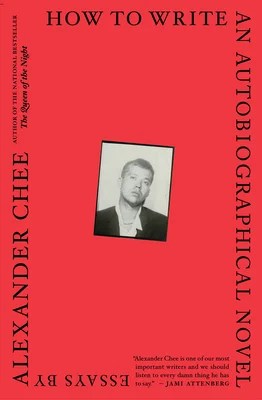
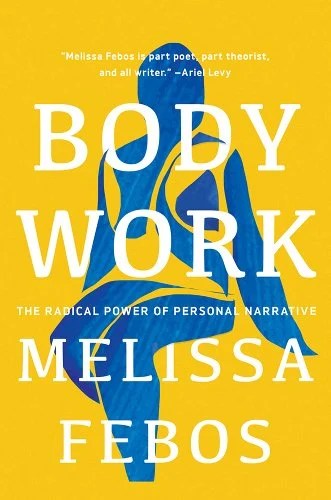
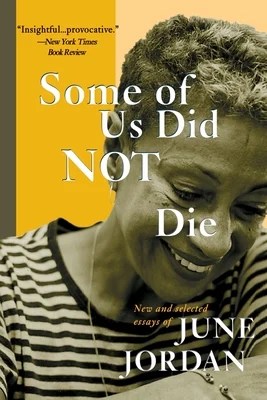
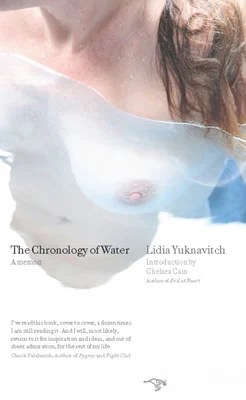
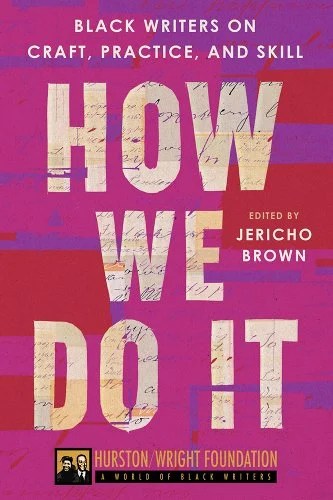
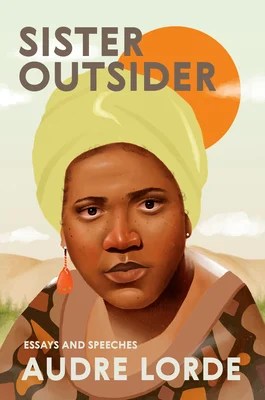
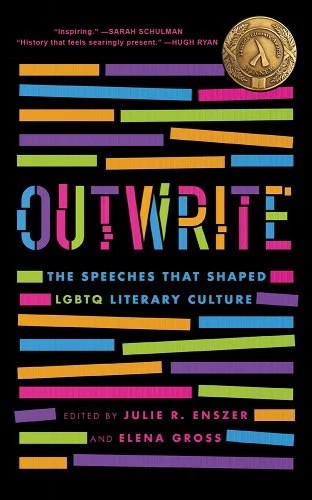
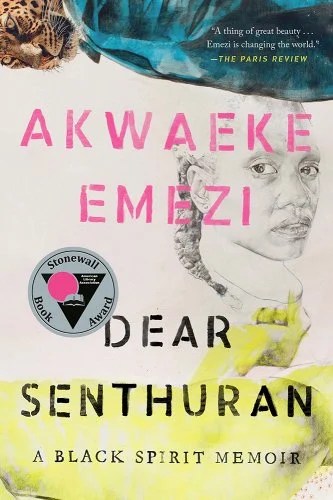
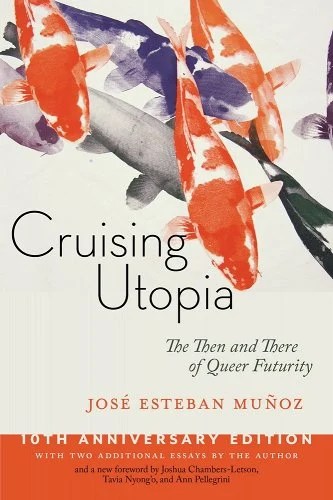

well this is perfectly timed for my life & reading/writing needs. Thank you!!
I am always looking for more books! The “queer section” in my house is growing quickly! Pretty soon, it might take over the kitchen.
OK not technically essays per say but a lesbian memoir/cookbook is “murder in the kitchen” by Alice b toklas it’s so great
Also mara!!! I love her so much!!!
omg, memoirs are my favorite. I want to get all of these that I haven’t read yet. I just read Funny in Farsi this year too!
YES!!! Favorite genre and I’ve been looking for more things to read because I’m in a reading phase currently. This is wonderful!!!
I swear AS writers = psychic. Probably this week I’ll read Mara Wilson’s autobiography. And I was thinking about pitching an essay to a webzine that publishes solely nb ppl about having to ‘dequeer’ my work by using my birth name and hating it.
If I were a trans guy I’d just tell them my names Liam but my gender fluctuates & I don’t feel I can explain that to mainstream publishers.
I love Chloe Caldwell’s writing! We’ve emailed a few times and I had heart eyes the whole time. It’s very easy for me to get lost (in a good way) reading all of her online work. Too Good and Not Enough is next on my to-read pile!
This is so spot on! Thank you! As an Iranian-American, I’m pretty psyched to learn about Funny in Farsi!
So bummed I overslept your workshop! I will now consume all these books.
Why are the comments all from 2017 and not related to the text of the article except for both being about books?
body work and cruising utopia were both absolute game changers for me, not just as a writer but just a general human. great list, kayla!
I impulse bought “How to Write an Autobiographical Novel” at 3 am a few months ago after it had been recommended by a writing teacher. It has been sitting on my shelf in my emotional support pile of unread books. I’m going to read it next. Thank you!!